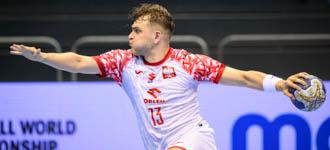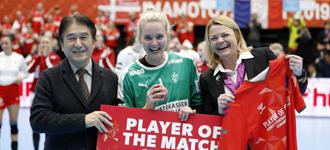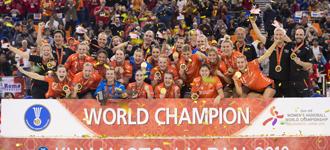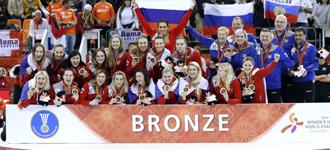Japan 2019: Hungary
17 Nov. 2019
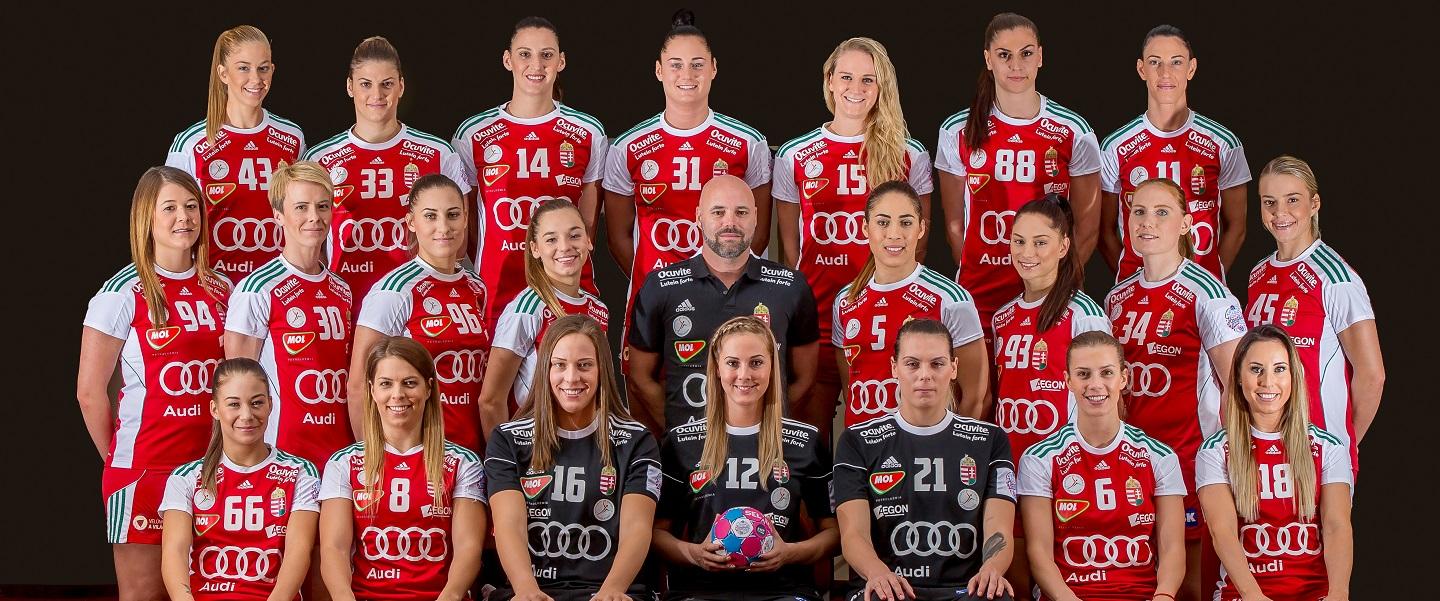
This month, ihf.info will share team previews of the participating nations at the 24th IHF Women’s World Championship that starts on 30 November.
Are Hungary on their way back to the top? After finishing as medallists at the IHF Women’s World Championship no less than nine times from the first edition in 1957 up until 2005, with the last podium climb that year (bronze), Hungary’s rankings on the women’s international scene dropped.
The last decade has seen Hungary struggling to break back into the top teams at the World Championship, although they managed one European bronze medal during that time – in 2012. They also missed places at the 2012 and 2016 Olympic Games, so the wait for Hungary has been long but finally, it appears a re-emergence into the elite group of the world’s best teams is not far away.
The hiring of current national team coach Kim Rasmussen in 2016 signalled the start of a rebuilding period. The Danish coach was previously in charge of the Poland women’s team, reaching the semi-finals at both the 2013 and 2015 IHF Women’s World Championships. In 2016, he led Champions League debutants CSM Bucuresti all the way to the title in their very first season in the top European competition.
The focus of the national squad turned to the myriad of bright talents coming through the youth and junior teams, and the work with the youth age groups is clear to see. In the last 18 months, Hungary won their first Women’s Junior World Championship trophy, as well as their first U19 and U17 European titles, and the first U16 European Open gold medal. In addition, they took the silver medal at the 2018 IHF Women’s Youth World Championship and bronze at the European Youth Olympic Festival (EYOF) for U17 teams in 2019.
In short, there was no international youth age event for women’s teams since 2018 that Hungary did not take a medal from. The pool of talent is now so deep that Hungary could afford to split their U17 squad in two, with one half vying for the European title over the summer, while the other focused on the EYOF.
It is clear that the future is bright for Hungary, and with players such as 2018 junior world champions Noemi Hafra and Katrin Klujber quickly grabbing attention on their Champions League debuts for club FTC-Rail Cargo Hungaria, any doubt that the individual talents would not be able to shine in the open age group evaporated. Hafra was even named the All-star Team left back at the EHF EURO 2018 last December, at the age of 19.
At the EURO, Hungary started to show the results they have been waiting for, taking wins against tough teams such as Romania, who went on to reach the semi-finals, Spain and Germany. They eventually ranked seventh. Now, Hungary have the firm goal of placing among the top seven nations at the upcoming Women’s World Championship, with a return to the Olympic Games the key target.
“We would like to play effective handball, fast handball. We would like to give something for the fans to enjoy,” says coach Rasmussen. “Our first goal is to reach the first seven positions for the participation right at the Olympic Qualification Tournaments. If we can achieve it, we would like to win as many games as we can. Our team is very young, but we believe that we will be in the competition.”
Starting in Group C at the World Championship, Hungary will again meet Romania and Spain, as well as Montenegro, Senegal and Kazakhstan.
“We avoided the AB-side, so we cannot meet with France, Norway, Denmark, Serbia, Brazil and many more strong teams until the semi-finals. However, we have a very balanced group, but we have the chance to win against all our group opponents,” says Rasmussen.
“We have to be stable. We respect Romania. They arrive at the tournament with a new head coach, and we also know Montenegro, though we will play with them very often, since we are also in the same group with them in the European qualifiers. We beat Spain last year, but this is not guarantee for anything – it will not be an easy match against them. Against Kazakhstan and Senegal, we also try to win, beside our full respect.”
Hungary’s preparation for Japan 2019 included the EURO qualification matches versus Lithuania and Italy in September, which are followed by a preparation tournament in Seoul in November. There, Hungary take on Russia, Republic of Korea and Serbia.
Coach: Kim Rasmussen
Key players: Aniko Kovacsics (centre back), Blanka Biro (goalkeeper), Noemi Hafra (left back)
Qualification for Japan 2019: Qualification Europe Phase 2 Play-Off – Winners versus Austria
History in tournament: 1957: 2nd, 1962: 5th, 1965: 1st, 1971: 3rd, 1973: 4th, 1975: 3rd, 1978: 3rd, 1982: 2nd, 1986: 8th, 1990: DNQ, 1993: 7th, 1995: 2nd, 1997: 9th, 1999: 5th, 2001: 6th, 2003: 2nd, 2005: 3rd, 2007: 8th, 2009: 9th, 2011: DNQ, 2013: 8th, 2015: 11th, 2017: 15th
Group at Japan 2019: Group C (Hungary, Romania, Montenegro, Spain, Senegal, Kazakhstan)



